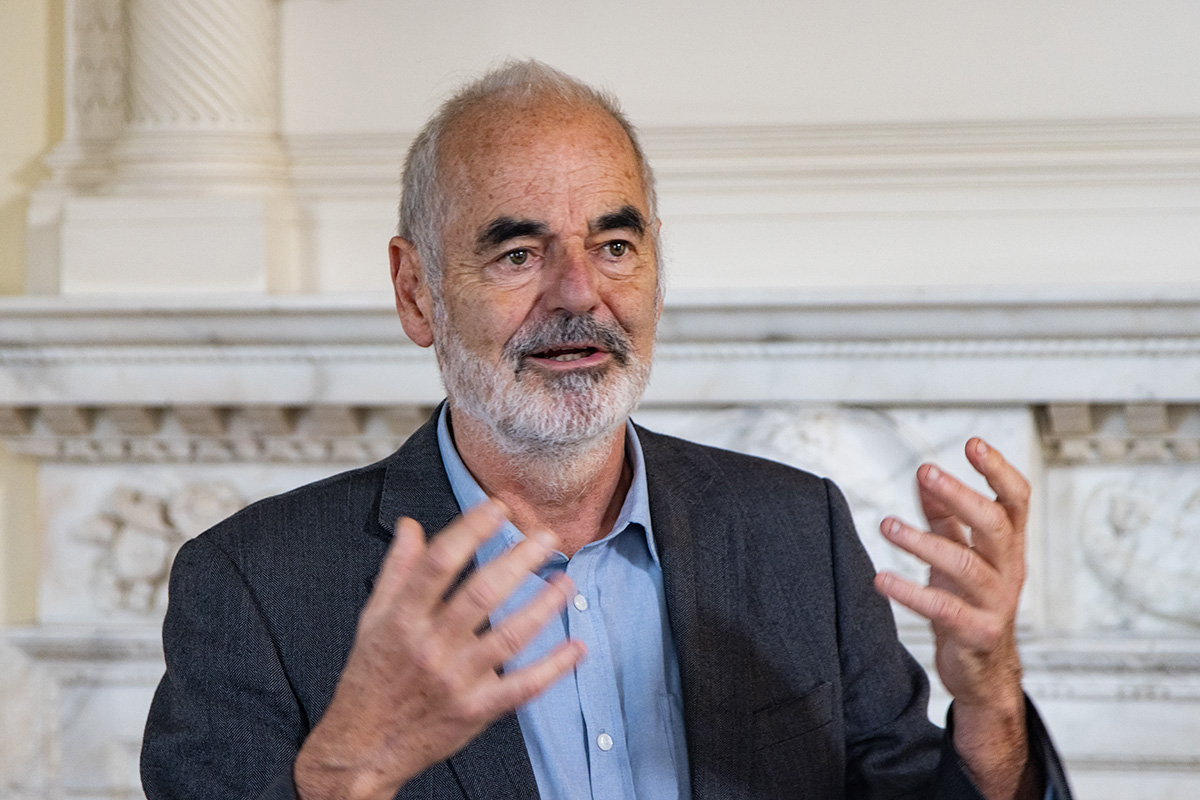Take it up with Prof David Spiegalhalter of Cambridge Uni. He insists that if Medical Practices are randomised in a study, they must be the unit analysed and not the individual participants wthin them . And that analysing them on an individual participant basis is 'statistical incompetence' that ruins many s study.A cluster randomised controlled trial is a completely valid trial structure. I can’t agree with your assessment that it is somehow incompetent.
Some questions and interventions are just better suited to this kind of structure.
The trial protocol is here which details the methods
-
Please Remember: Members are only permitted to share their own experiences. Members are not qualified to give medical advice. Additionally, everyone manages their health differently. Please be respectful of other people's opinions about their own diabetes management.
You are using an out of date browser. It may not display this or other websites correctly.
You should upgrade or use an alternative browser.
You should upgrade or use an alternative browser.
Insulin resistance, beta cell dysfunction, hyperinsulinaemia, and DiRECT
- Thread starter harbottle
- Start date
- Status
- This thread is now closed. Please contact Anna DUK, Ieva DUK or everydayupsanddowns if you would like it re-opened.
Eddy Edson
Well-Known Member
- Relationship to Diabetes
- In remission from Type 2
Interesting. Do you have a reference to where Spiegelhalter says this?Take it up with Prof David Spiegalhalter of Cambridge Uni. He insists that if Medical Practices are randomised in a study, they must be the unit analysed and not the individual participants wthin them . And that analysing them on an individual participant basis is 'statistical incompetence' that ruins many s study.
From my very limited understanding, the main issues with cluster-controlled studies are the need for greater numbers to get the required statistical power, and the need to take into account possible correlations within clusters. The DiRECT trial design acknowledged these issues & took steps to address them. Dunno how effectively.
- Relationship to Diabetes
- Type 1
- Pronouns
- He/Him
Take it up with Prof David Spiegalhalter of Cambridge Uni. He insists that if Medical Practices are randomised in a study, they must be the unit analysed and not the individual participants wthin them . And that analysing them on an individual participant basis is 'statistical incompetence' that ruins many s study.
I will have to take your word for that as I’m afraid I’ve never heard of him.
And statistical incompetence tends to get picked up during peer review I would think?
Cluster randomised trials are not without structural challenges (as, indeed are all clinical trials), but well designed CRTs are common in healthcare interventions.
Cluster Randomized Trials - ARCHIVED - Rethinking Clinical Trials
CHAPTER SECTIONS Contributors Patrick J. Heagerty, PhD Elizabeth R. DeLong, PhD For the NIH Health Care Systems Research Collaboratory Biostatistics and Study Design Core Contributing Editors Damon M. Seils, MA […]
 rethinkingclinicaltrials.org
rethinkingclinicaltrials.org
“CRTs are in common use in areas such as education and public health research; they are particularly well suited to testing differences in a method or approach to patient care (as opposed to evaluating the physiological effects of a specific intervention).”
Perhaps the Prof is more used to trials for pharmacological interventions?
D
Deleted member 21371
Guest
Take it up with Prof David Spiegalhalter of Cambridge Uni. He insists that if Medical Practices are randomised in a study, they must be the unit analysed and not the individual participants wthin them . And that analysing them on an individual participant basis is 'statistical incompetence' that ruins many s study.
Sure it wasn't
"Experiments should, wherever possible, allocate individuals or groups to interventions randomly"
Eddy Edson
Well-Known Member
- Relationship to Diabetes
- In remission from Type 2
He's a major figure who has certainly studied this kind of setting. My guess is he's referring to studies which don't take account of correlation issues properly but it'd be interesting to see the reference.I will have to take your word for that as I’m afraid I’ve never heard of him.
And statistical incompetence tends to get picked up during peer review I would think?
Cluster randomised trials are not without structural challenges (as, indeed are all clinical trials), but well designed CRTs are common in healthcare interventions.
Cluster Randomized Trials - ARCHIVED - Rethinking Clinical Trials
CHAPTER SECTIONS Contributors Patrick J. Heagerty, PhD Elizabeth R. DeLong, PhD For the NIH Health Care Systems Research Collaboratory Biostatistics and Study Design Core Contributing Editors Damon M. Seils, MA […]rethinkingclinicaltrials.org
“CRTs are in common use in areas such as education and public health research; they are particularly well suited to testing differences in a method or approach to patient care (as opposed to evaluating the physiological effects of a specific intervention).”
Perhaps the Prof is more used to trials for pharmacological interventions?
D
Deleted member 21371
Guest
He's a major figure who has certainly studied this kind of setting. My guess is he's referring to studies which don't take account of correlation issues properly but it'd be interesting to see the reference.
Certainly "statistical incompetence" doesn't give any hits associated with him anywhere.
He is a big fan of larger numbers though, as you said.
Spathiphyllum
Well-Known Member
- Relationship to Diabetes
- Type 1
Gasp-- you've never heard of David Spiegelhalter???I will have to take your word for that as I’m afraid I’ve never heard of him.

David Spiegelhalter - Wikipedia

Appears from time to time on 'More or Less', which *everyone* should listen to: https://www.bbc.co.uk/programmes/p00msxfl
Like Eddy, though, I'd like to see Burylancs's reference for what he claims Prof Spiegelhalter said.
D
Deleted member 21371
Guest
Gasp-- you've never heard of David Spiegelhalter???
Statistically, many people haven't
.
.
.
.
.
(poor attempt at humour)
- Relationship to Diabetes
- Type 1
- Pronouns
- He/Him
Appears from time to time on 'More or Less', which *everyone* should listen to: https://www.bbc.co.uk/programmes/p00msxfl
I feel such a fool! 😱
And I love “more or less” whenever I happen to catch it!
Spathiphyllum
Well-Known Member
- Relationship to Diabetes
- Type 1
Oh good! I myself am a Loyal Listener, albeit often by catch-up on BBC Sounds.And I love “more or less” whenever I happen to catch it!
- Relationship to Diabetes
- Type 1
- Pronouns
- He/Him
Oh good! I myself am a Loyal Listener, albeit often by catch-up on BBC Sounds.
Sliced Bread is good too.
Bruce Stephens
Well-Known Member
- Relationship to Diabetes
- Type 1
https://www.bbc.co.uk/sounds/series/p02nrss1 says there are 565 episodes available, for anyone who has missed any.Oh good! I myself am a Loyal Listener, albeit often by catch-up on BBC Sounds.
(You can also subscribe on any podcast app (which is how I listen to it, usually). Some things are exclusive to BBC Sounds but this isn't one of them.)
Spathiphyllum
Well-Known Member
- Relationship to Diabetes
- Type 1
Snap! It's fascinating how they delve into the technical details of different products.Sliced Bread is good too.
In the same sort of genre, 'A Thorough Examination', with the van Tulleken twins, I really enjoyed:

BBC Radio 4 - A Thorough Examination with Drs Chris and Xand - Available now
Available episodes of A Thorough Examination with Drs Chris and Xand
Both Series 1, 'Addicted to Food', and Series 2, 'Can I Change?' Not only because one learns a lot from the experts they talk to, but also because the relationship between these two twins is so interesting, often hilarious.
D
Deleted member 21371
Guest
They both look interesting.
I'll have to give them a try.
I'll have to give them a try.
This paper you mean?Maybe there is some confusion and thinking of the Dr Unwin.
He had no control group, just a study of some of his patients who apparently performed well, and reported their diet to him, on a hearsay basis?
(Which is still worth trying for some, if it works)
https://nutrition.bmj.com/content/early/2023/01/10/bmjnph-2022-000544
check out author number 5
D
Deleted member 21371
Guest
This paper you mean?
https://nutrition.bmj.com/content/early/2023/01/10/bmjnph-2022-000544
check out author number 5
You keep churning this old chestnut out.
It's been explained to you before, Prof Taylor is there he is mentioned in the study and Dr Unwin originally used extracts from Prof Taylors papers, so he has to be credited.
(He's also in the references if you want to expand your post next time)
There is one thing they all agree on, in your link, it's lack of insulin, caused by inhibited beta cell function.
Last edited by a moderator:
Eddy Edson
Well-Known Member
- Relationship to Diabetes
- In remission from Type 2
Taylor was more involved than that:You keep churning this old chestnut out.
It's been explained to you before, Prof Taylor is there he is mentioned in the study and Dr Unwin originally used extracts from Prof Taylors papers, so he has to be credited.
He is listed as "contributor", not an author)
(He's also in the references if you want to expand your post next time)
RT advised on data interpretation and co-edited the manuscript.
He'll be speaking about this study at an event in May:
He helped Unwin with data stuff on previous papers. I think he's willing to support any clinical interventions which might improve outcomes.
But I doubt that he believes there is much in this observational study to suggest that the positive effects are much due to anything besides weight loss. If low-carb counselling can help T2D's lose weight and gain remission, great!
Just on that point, one of the clinician non-scientist co-authors said in a twitter thread that he believes the results must be idnependent of weight loss, because some of their "responders" only lost a kilo or two, and that's surely too little to have an independent effect.
There are immediate problems with that view. Eg: The baseline HbA1c's for their repsonders was low, averaging in the low 50's, and the serial variability of HbA1c tests is certainly enough to take some of these below 48 on a following test. Also, maybe the personal fat threshhold is a sharp enough division to make small weight loss meaningful in some cases (certainly seems consistent with my experience, looking back at my BG record, with a sharp cliff separating "elevated" from "normal"). Anyway, this is the reason people look at p values rather than just going by "surely" type arguments.
D
Deleted member 21371
Guest
Taylor was more involved than that:
RT advised on data interpretation and co-edited the manuscript.
He'll be speaking about this study at an event in May:
He helped Unwin with data stuff on previous papers. I think he's willing to support any clinical interventions which might improve outcomes.
But I doubt that he believes there is much in this observational study to suggest that the positive effects are much due to anything besides weight loss. If low-carb counselling can help T2D's lose weight and gain remission, great!
Just on that point, one of the clinician non-scientist co-authors said in a twitter thread that he believes the results must be idnependent of weight loss, because some of their "responders" only lost a kilo or two, and that's surely too little to have an independent effect.
There are immediate problems with that view. Eg: The baseline HbA1c's for their repsonders was low, averaging in the low 50's, and the serial variability of HbA1c tests is certainly enough to take some of these below 48 on a following test. Also, maybe the personal fat threshhold is a sharp enough division to make small weight loss meaningful in some cases (certainly seems consistent with my experience, looking back at my BG record, with a sharp cliff separating "elevated" from "normal"). Anyway, this is the reason people look at p values rather than just going by "surely" type arguments.
"RT advised on data interpretation and co-edited the manuscript"
Was that his or the PHC's line?
If you have a look at the additional bits, that looks like the normal sort of weight loss slides the Prof Taylor originally used at his weight loss presentation.
There isn't much in the actual text that looks like his.
(The other interesting bit in that is if the diet fails, the first thing to consider is carb creep, so the onus is that the patient didn't diet properly)
It'll be interesting to hear his take on it though.
Eddy Edson
Well-Known Member
- Relationship to Diabetes
- In remission from Type 2
It's from the BMJ paper:"RT advised on data interpretation and co-edited the manuscript"
Was that his or the PHC's line?
Contributors DU initiated the approach in the practice, designed the infographics and wrote the initial drafts. JU organised and ran the group consultations, also training all clinical staff in using patients’ own goals and feedback to implement change. CD did the statistics, produced the tables, the boxplots and regression models. ST supported the approach within the practice and co-edited the manuscript. RT advised on data interpretation and co-edited the manuscript. DU is responsible for the overall content as guarantor.
D
Deleted member 21371
Guest
It's from the BMJ paper:
Contributors DU initiated the approach in the practice, designed the infographics and wrote the initial drafts. JU organised and ran the group consultations, also training all clinical staff in using patients’ own goals and feedback to implement change. CD did the statistics, produced the tables, the boxplots and regression models. ST supported the approach within the practice and co-edited the manuscript. RT advised on data interpretation and co-edited the manuscript. DU is responsible for the overall content as guarantor.
Ah, ok, ta.
It looks like you were right with your opinion of him.
Any weight loss is good.
It's all over the internet now, it looks like BHC have agreed the wording with Prof Taylor, weight loss and a good diet.
Looks a good thing.

- Status
- This thread is now closed. Please contact Anna DUK, Ieva DUK or everydayupsanddowns if you would like it re-opened.
